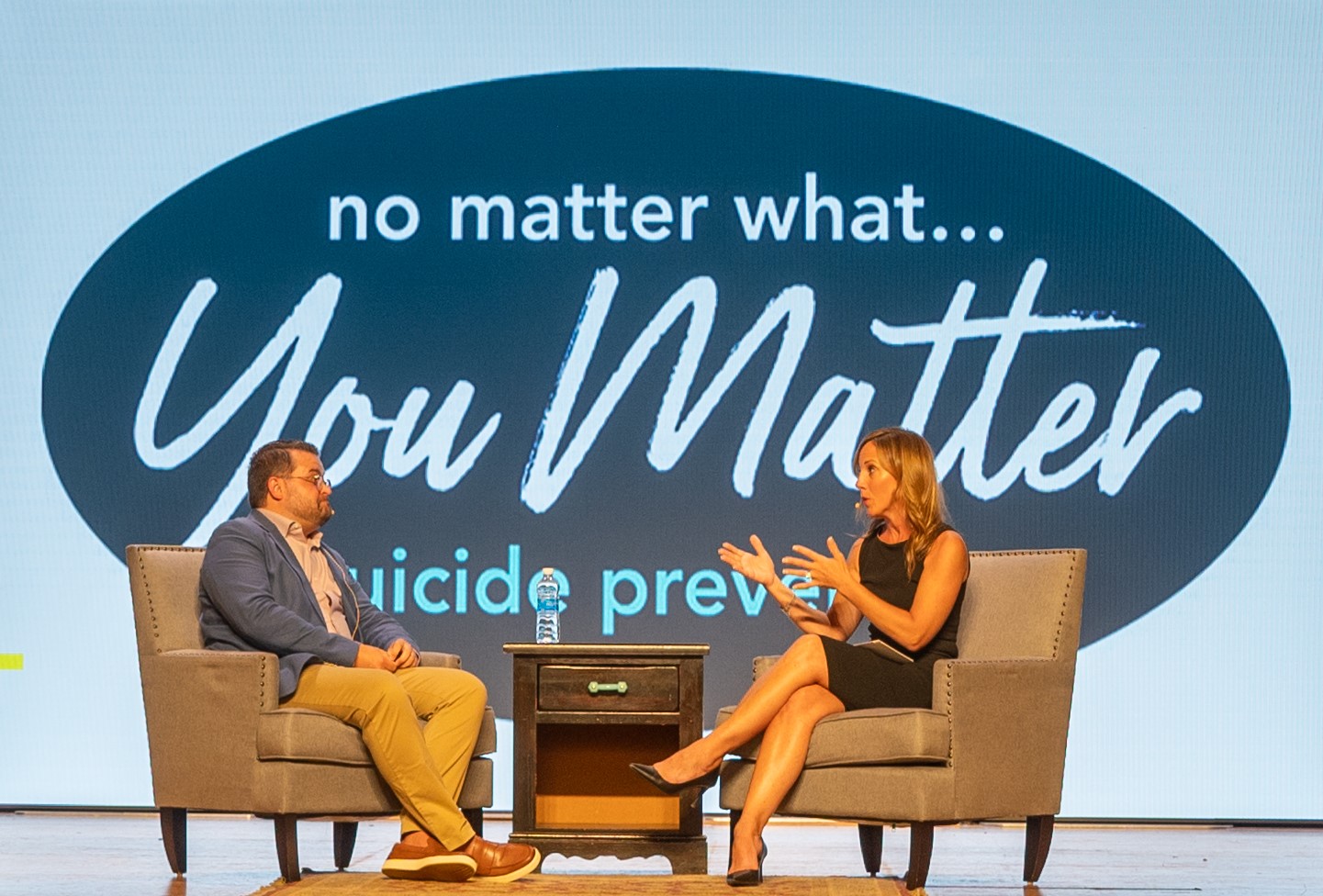For All Seasons hosted a free community event, “We All Have a Role to Play in Suicide Prevention,” on September 7 from 7 to 8:30 p.m. at the Avalon Theatre in Easton. The event featured Dr. Andrew Moon, a leader within the Veterans Affairs’ National Suicide Prevention Program. Dr. Moon shared his invaluable experience in averting crisis points before suicidality. He is a clinical psychologist with a career focus on trauma, suicide prevention, and education, and is currently the Senior Advisor for Partnerships, Engagement, and Education for the Department of Defense Suicide Prevention Office.
His talk shared insights into national, state, and local mental health data – specifically how suicide impacts specific groups, including veterans, first responders, LGBTQ+ populations, nurses, and doctors on the front lines, and youth. In addition, he outlined the pivotal role each one of us plays in suicide prevention, offering practical strategies for recognizing signs of struggle and responding effectively. Moon also shared how to foster an environment of safety for those in your circle to prevent suicide and support those you care about.
“There’s an official rule of three that we’re taught when we learn about suicide where if you take the number of people who die by suicide and multiply that by three, that’s likely the number of people who have attempted suicide. And if you multiply that number by three, that’s likely the number of individuals who are working through some sort of suicidal ideation,” Dr. Moon explained.
“So, when we think about the numbers from 2021, with 1,700,000 attempts, and because there are attempts that don’t get reported, we multiply that number, and we’re looking at well over 5 million people who might have thoughts of dying by suicide.”
Dr. Moon shared that a lot of people equate suicide with mental illness – that if someone dies by suicide, they automatically have depression or bipolar disorder, or schizophrenia. He added, “Actually, from the knowledge we have gained over these years, only 46 percent of people who die by suicide carry a mental health diagnosis, which means there is 54 percent of that number, did not have a mental health concern that registered enough to have a diagnosis. It was all the other factors that play out in someone’s life that led them to the point of considering death by suicide.”
Among these factors are relationship issues, substance use, and alcohol intoxication. Connection is another issue that factors into suicide. “Community factors, being connected to a spiritual community, being connected to your neighborhood community, being connected to the people that you engage with outside of your house, is particularly important to have a sense of, I’m not alone,” Dr. Moon stated.
The presentation also focused on those impacted by suicide. He explained, “For every one person that dies by suicide, about 135 people are directly and intensely impacted . . . There are a lot of people walking around with that impact, and they’re carrying around the potential grief and potential trauma that comes with that experience, and that makes conversations like we’re having this evening, even more important. We want to be able to be sure that those who have experienced this sort of thing can be connected and talk through that experience.”
Beth Anne Dorman, President and CEO of For All Seasons, concluded, “Please know that you’re not alone. Our Ask, Listen and Share campaign is something that we can all be a part of. It doesn’t take a lot of time to ask the question – ‘How are you doing?’ To send a text checking in on someone, and then making sure that we’re not only asking that question, but we’re sticking around to listen with a whole heart with no judgment and then sharing resources that might help them.”
For further information about the For All Seasons Suicide Prevention Campaign, visit NoMatterWhatYouMatter.org.




Jenifer emley says
Dear Beth Anne, thank you so much for all you have done and for all you continue to do.
You are a treasure. Hugs. ❤️